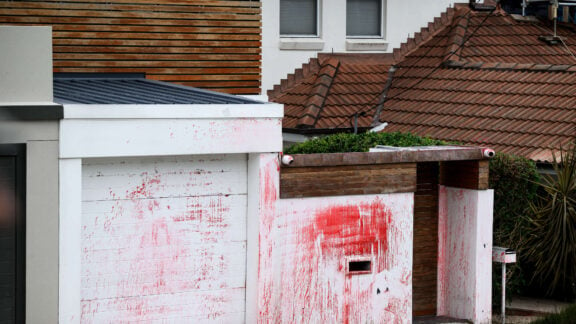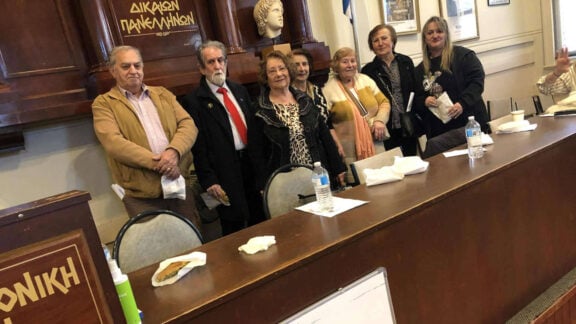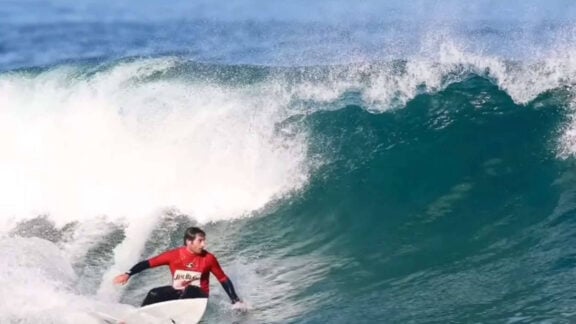Former Greek President Christos Sartzetakis has passed away early Thursday morning in an Athens hospital, he was aged 93.
Sartzetakis had been treated for pneumonia in the intensive care unit of Laiko General Hospital since 4 December, after developing acute respiratory failure. He died at 2.45 am (Greece time).
Christos Sartzetakis was born in 1929 in Neapoli, Thessaloniki. His father was a police official from Chania, Crete, while his mother was from Florina, northern Greece. He studied law at the Aristotle University of Thessaloniki, and specialised in Mercantile and European Community Law in Paris. He later entered the judiciary in 1955.
In 1963 he became internationally famous when, as a judge in Thessaloniki, he conducted the investigation into the murder of the left-wing Member of Parliament, Grigoris Lambrakis, whose case he presided over and helped to solve. The killing provoked mass protests and led to a political crisis in Greece. Sartzetakis presided over the case and helped solve it, despite pressure from the right-wing political and judicial leadership of the time to cover up the crime.
His role and the events surrounding the case were immortalised in director Costa Gavras’ movie “Z”.
In 1968, during the military dictatorship, he was expelled from the judiciary, arrested, tortured and imprisoned for almost a year without trial. With the fall of the dictatorship he was re-instated into the judiciary in September 1974 with the rank of judge of the Court of Appeal, rising in 1982 to Supreme Court Justice.
In 1985, the Panhellenic Socialist Movement (PASOK) proposed Christos Sartzetakis as President of the Republic, and was elected on 29 March 1985, succeeding Konstantinos Karamanlis.
Christos Sartzetakis was an honorary member of the High Court of Portugal, an honorary Professor of the History and Ethnology Department of the Democritus University of Thrace, an honorary member of the Literary Society of Thessaloniki and a member of scholarly societies in Greece and abroad. He had been awarded the highest medals of foreign countries and is an honorary citizen of many towns in Greece. He had also published various works on law and politics.
SATZETAKIS’ CONTROVERSIAL VISIT TO AUSTRALIA
Sartzetakis’ presence also had a big impact on the Australian Greek diaspora, especially following his visit in 1988. In November of that year, the then President of the Hellenic Republic, arrived in Australia representing Greece, to celebrate the 200 years from the establishment of the Australian nation.
The Greek Culture Ministry organised an exhibition themed ‘Ancient Macedonia’ in Melbourne which was meant to be opened by Sartzetakis alongside the then Australian Prime Minister Bob Hawke, among others.
Hundreds of Northern Macenonian (FYROM) nationals gathered outside of the Museum of Victoria on 24 November 1988 booing Sartzetakis and his entourage. On the other side of the road, many more Greek Australians chanted in support of Macedonia’s Greekness. Things became so tense that the police wanted to escort Sartzetakis through a back door to avoid altercations.
Sartzetakis would not accept to leave through a back door and stated that “I am the President of the Greek Democracy and I will not leave like a burglar,” through a microphone to the crowd that had gathered.
Greeks applauded and commended Sartzetakis’ stance while the Northern Macedonia (FYROM) side kept booing and even threw objects at the president. At a later dinner, the Australian government censored his speech in relation to Macedonia to avoid offending the FYROM representatives. Instead of succumbing, Sartzetakis threatened to return to Greece, risking a diplomatic incident with unpredictable implications.
Due to the significant influence of the Greek Australian population, the Australian government stepped back. Sartzetakis found himself in an even harsher predicament when he visited Sydney, where Northern Macedonia nationals went as far as to physically harm him.
The TV footage from the rallies and the uproar, made it all the way to Greece, exposing the very first signs of “war” over the name of “Macedonia”, a then unknown dispute that would end up tormenting Greece for years – to this day.
Sartzetakis is survived by his wife, Efi Argiriou, and his daughter.









